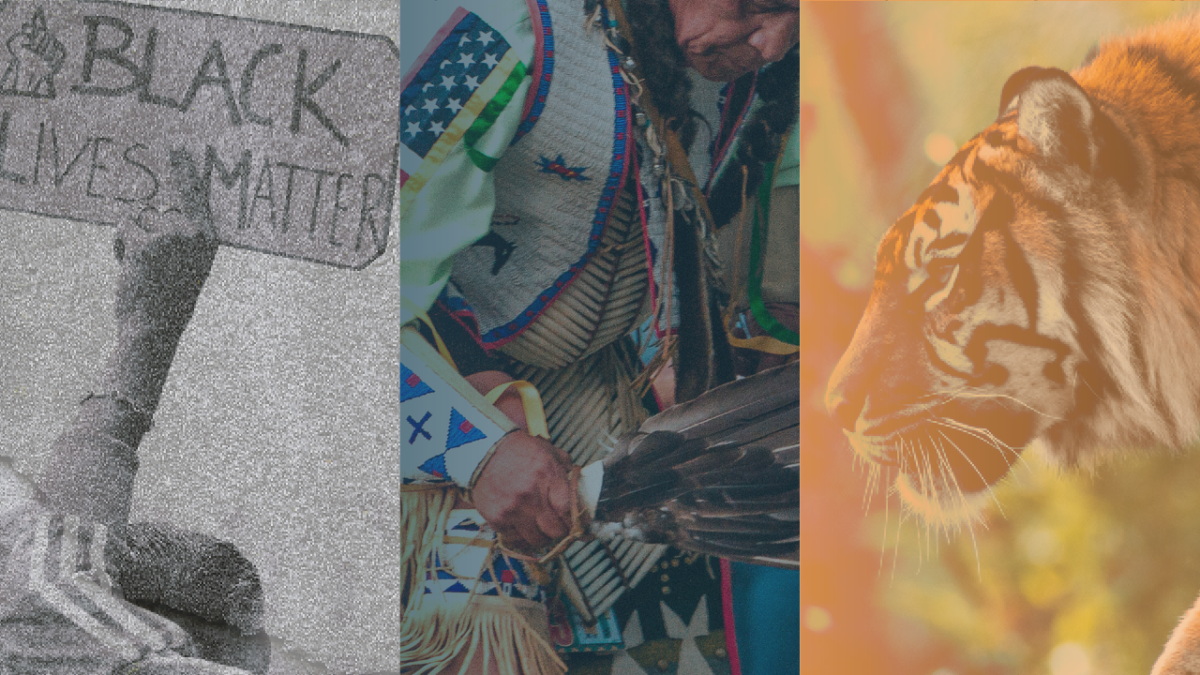ASU humanities institute hosts 'Hope and Empowerment' series

The “Scholarly Series on Hope and Empowerment” featured Kevin Winstead, who spoke on the role of hope in the Black Lives Matter movement; Leanne Simpson, who shared several readings of Indigenous stories; and C Pam Zhang, who spoke on her debut novel "How Much of These Hills is Gold." Photos courtesy Unsplash and Lauren Whitby.
In the wake of 2020’s challenges, Arizona State University's Institute for Humanities Research wanted to infuse hope and empowerment into ASU humanities conversations.
The institute's “Scholarly Series on Hope and Empowerment,” which took place in the fall 2020 semester, featured three scholars whose lectures revealed how personal challenges, triumphs and backgrounds can become an integral part of change-making scholarship.
First, Kevin Winstead presented his lecture on the role and function of hope in the age of Black Lives Matter. Though Winstead admitted that he struggled to find hope amidst the racial injustices that have been highlighted throughout the year, his lecture became a source of hope for attendees.
For example, he shared the following quote from an activist in Washington, D.C.: “Being a Black activist, hope is in spite of everything that we’ve seen and everything that we endure. Hope is bravery.”
At the second lecture in the series, Leanne Simpson, a renowned Michi Saagiig Nishnaabeg scholar, writer and artist, shared readings of several stories that highlighted Indigenous experiences and voices of her community.
“Leanne is unyieldingly committed to the flourishing of Indigenous life,” said Jerome Clark, Diné (Navajo), English literature PhD candidate and moderator of the lecture.
“Her talk was a reminder that we must tell our people’s stories to defend Indigenous life and world-build. She reminds us that the stories we tell about ourselves and others matter to life and how we live life. In my world, now and in the future, Indigenous life is worth living and defending.”
At the final lecture, C Pam Zhang discussed her debut novel “How Much of These Hills is Gold.”
Zhang shared that growing up she felt disempowered by the literature she experienced, which seemed to be predominantly “middle-class white suburban stories.”
She explained that she wrote “How Much of These Hills is Gold” as a “love letter to the Western canon” and an “act of defiance” to make Asian American families and stories a part of that canon.
The three lectures are available to watch on the institute's YouTube channel on the “Scholarly Series on Hope and Empowerment” playlist. The Institute for Humanities Research is currently seeking out new ways to provide a source of light in the lingering darkness and hopes to continue the series in the future.
“This series was a great way for the ASU community to engage with speakers whose work is dynamic and important, especially in these times of uncertainty,” said Celina Osuna, institute coordinator and Desert Humanities assistant director.
“By centering hope and empowerment, each event explored creative, generative ways that cultural identities and humanistic practices build a stronger sense of community.”
More Arts, humanities and education

ASU alumna makes her way back to the ASU Gammage stage for '¡azúcar!'
As the Los Angeles-based CONTRA-TIEMPO dance group prepares for its upcoming production “¡azúcar!” at ASU Gammage, for one member…

ASU FIDM professor wins international award for fantastical, sustainable creation
The horror of an ailing Earth inspired an Arizona State University fashion professor to create a fantastical garment out of…

ASU workshop trains educators, professionals from marginalized communities in disaster science
As devastating as hurricanes can be to anyone caught in their paths, they strike marginalized communities even harder.To address…